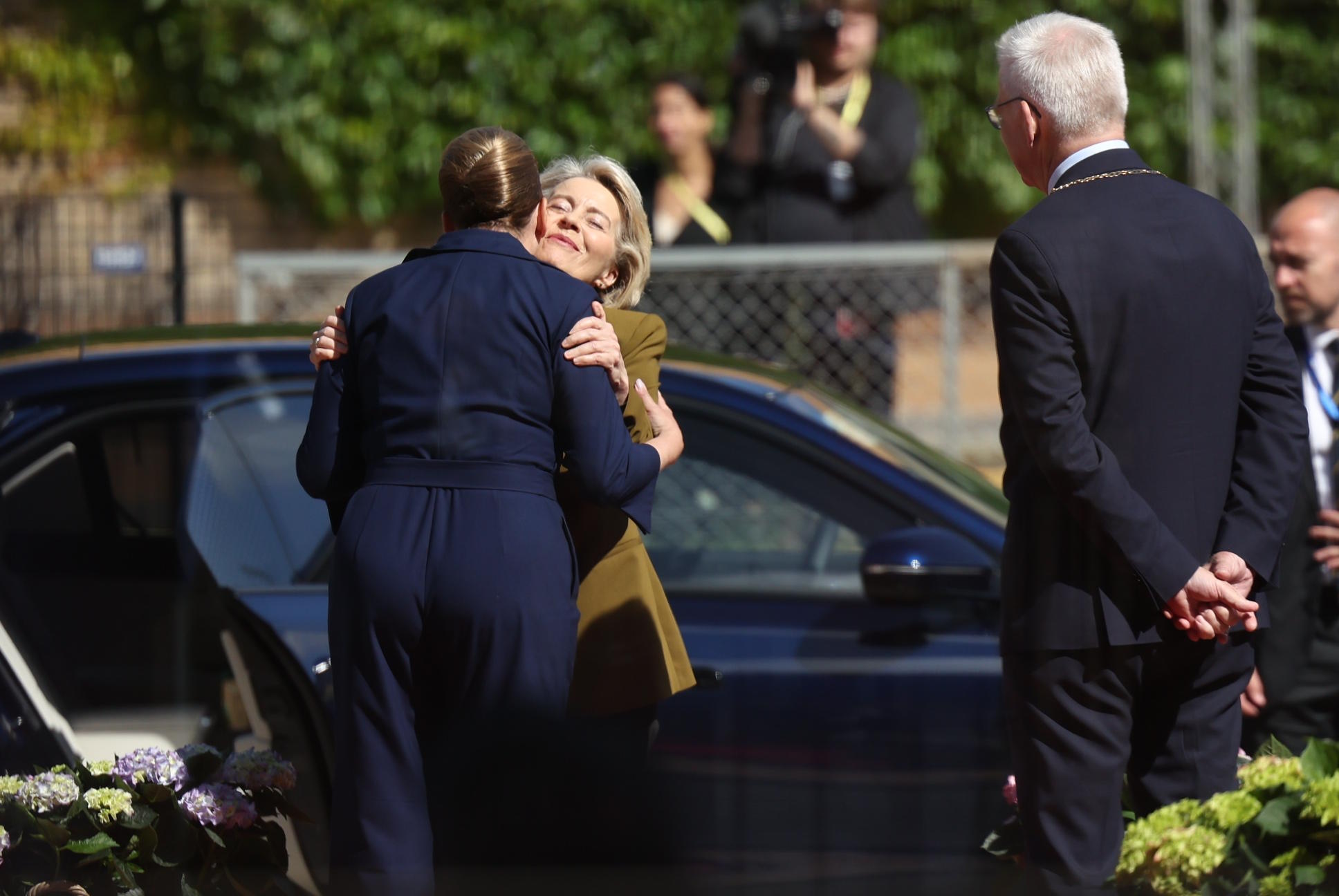"Rearming Europe by 2030 at the latest"; "strengthening our support for Ukraine"; and "immigration." These are the three main action points and objectives that Denmark's Prime Minister, Mette Frederiksen, has set for the rotating presidency of the Council of the European Union that she now holds. And in the latter point, regarding migration policy, the proposals and almost demands are very strong: expel foreigners who commit crimes and do not respect European values and lifestyles.
"The current asylum system is broken. At this moment, it is human traffickers who have the power to decide who enters Europe and who does not. And, in the meantime, we see the consequences of uncontrolled migration in our societies. We need to have control over our own borders," Frederiksen stated yesterday in Aarhus, where the presidency's opening events are taking place, and which on Thursday hosted the meeting of the College of Commissioners.
"And I will be very frank," continued Denmark's social-democratic Prime Minister. "People who come from outside and commit serious crimes, who do not respect our values or our way of life, have no place in Europe. They must be expelled."
Frederiksen emphasized the need for "new solutions to reduce the flow of migrants to Europe," and her government has already implemented measures to reduce this migratory flow. Or rather, to make those already in Danish territory return to their country.
The Danish government, in particular, is offering up to 80,000 euros to Syrian families with residence permits to return to Syria. For now, Copenhagen indicates that just under 1,000 families have accepted repatriation in exchange for this sum, and they add that the program is open to other nationalities.
For all these reasons, for what she aspires to develop in the EU and what she is already implementing in her country, Frederiksen's policies have often been compared to those of Italy's Prime Minister, Giorgia Meloni, and her immigrant deportation centers. The Danish government always points out that there is a significant difference between both leaders and, as mentioned, they are social democrats. But Denmark's social democracy is not exactly the same as, for example, that of Spain.
Von der Leyen: rearmament and vote of no confidence
The President of the Commission, Ursula von der Leyen, also spoke yesterday alongside Frederiksen and emphasized that during the Danish presidency, they expect to make significant progress in migration matters. For example, advancing proposals for the return of immigrants to third safe countries. The German senior official has previously referred to "innovative solutions," which is the euphemism Brussels has used for the Meloni model, so with all these elements, it seems clear that there will be significant developments in the next six months.
Von der Leyen also mentioned support for Volodymyr Zelensky, who also traveled to Aarhus yesterday, and of course, the rearmament of Europe. In this regard, Denmark will also find a partner with whom to advance in the current semester. In fact, the country will exceed 3% of GDP in military investment this year and always warns of the danger posed by Vladimir Putin.
"Russian aggression is the most significant threat to Europe, and many sources, including the Danish intelligence service, estimate that the military threat from Russia will increase in the coming years," said Troels Lund Poulsen, Denmark's Vice Prime Minister and Minister of Defense, earlier this week.
"I can only recommend using SAFE now," Von der Leyen emphasized yesterday, referring to the European fund of 150 billion euros to finance joint defense purchases. The Commission's top official pointed out that this instrument allows member countries to "take the money and buy military equipment and give it to Ukraine, or invest in the efficient Ukrainian defense industry."
What Von der Leyen avoided referring to at all times is the vote of no confidence she will have to face next week in the European Parliament. The procedure is the result of the initiative of the ultra-conservative Romanian MEP Gheorghe Piperea, and it is unlikely to succeed since not even his party, the ECR precisely of Meloni, has fully supported it.
However, it is a clear example of the political difficulties that Von der Leyen must face, starting with the 'Pfizer case' that triggered the motion. The Commission simply states the following: "Such initiatives are a right of the members of Parliament. We have no further comments."
